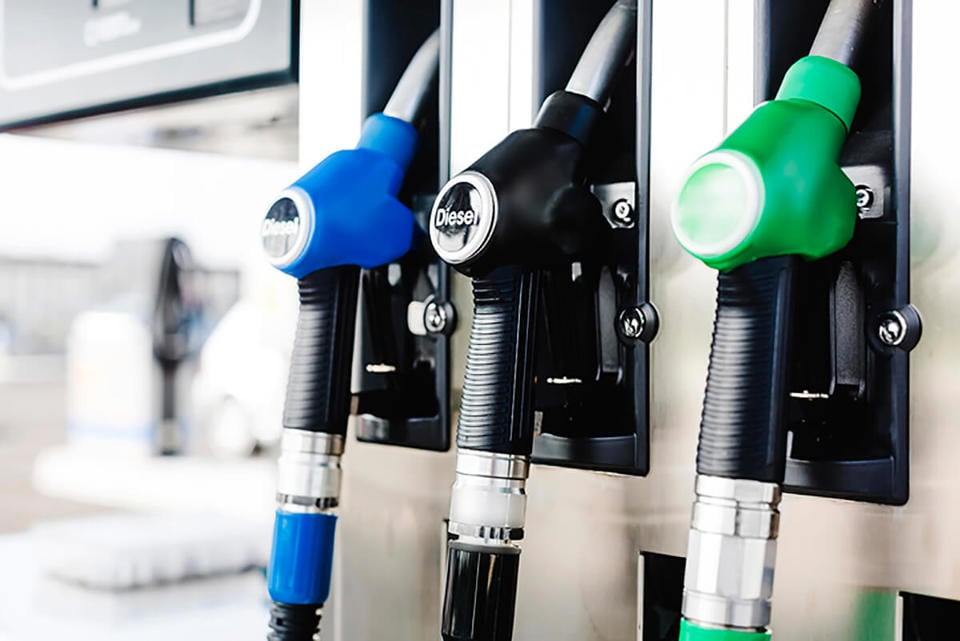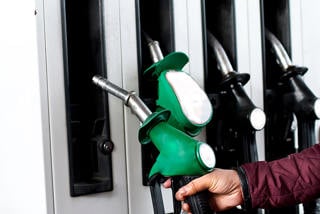The Government has announced that E10 fuel will be available from petrol stations in the UK from September.
A blend of petrol and ethanol, it says that E10 petrol could cut transport CO2 emissions by 750,000 tonnes a year – the equivalent of taking 350,000 cars off the road.
The decision follows a consultation with drivers and industry about the introduction of E10 fuel.
Transport secretary Grant Shapps said: “Although more and more motorists are driving electric vehicles, there are steps we can take to reduce emissions from the millions of vehicles already on our roads – the small switch to E10 petrol will help drivers across the country reduce the environmental impact of every journey, as we build back greener.”
The two petrol blends that are currently widely available in the UK contain no more than 5% ethanol, known as E5.
Using bioethanol in place of traditional petrol can reduce CO2 emissions and, therefore, increasing the ethanol content of petrol could help us meet our climate change targets, says the Department for Transport (DfT).
The ethanol used is made from materials including low-grade grains, sugars and waste wood.
A small number of older vehicles, including classic cars and some from the early 2000s, will continue to need E5 fuel, which is why supplies of E5 petrol will be maintained in the ‘Super’ grade.
DfT is advising motorists to use the new E10 compatibility checker to see if their vehicle is compatible.
The roll-out of the new fuel will also boost job opportunities in the north east, securing up to 100 jobs with the reopening of AB Sugar’s Vivergo plant, and increasing production at existing biofuel plants including Ensus.
Dr Mark Carr, group chief executive of AB Sugar, said: “We’ve long been calling for this introduction as E10 is one of the quickest, easiest and most cost-effective ways for the UK to reduce its carbon emissions, while providing an economic boost to sustain the British biofuels industry, and the local and national economy.”
Grant Pearson, director of Ensus UK, added: “The announcement today of the planned introduction of E10 fuel by the Department for Transport is excellent news – not only for the environment but also for the British bioethanol industry.
“E10 will mean that the majority of petrol sold in the UK will have lower greenhouse gas emissions than today, when fully introduced.
“Lowering emissions immediately for the current petrol car pool is very important – especially until electric vehicles can make a larger contribution to saving emissions in transport.”
Andy Eastlake, managing director of Zemo Partnership (formerly LowCVP), told Fleet News that, with more than 95% of the petrol cars on UK roads able to run using E10 petrol, introducing this as a standard fuel is one of the most effective ways to significantly cut carbon emissions at a stroke.
“Whilst Zemo Partnership’s priority is to accelerate transport to zero emissions, we are very aware that this cannot happen overnight," he said.
"Switching to E10 petrol and other renewable fuels as quickly as possible is a highly effective strategy for lowering our overall carbon emissions as fast as possible during the transition to zero.”
Dr Nina Skorupska, the chief executive of the Association for Renewable Energy and Clean Technology (REA), also welcomed the Government announcement.
“With the recent announcement of the 2030 phase out date for sales of new internal combustion engine cars and light vans, Government direction in this area is clear, but in the meantime there will be millions of traditional cars sold,” she said.
“We must act to reduce the emissions from these and we need those fuels to be as sustainable and low carbon as possible.
“Renewable transport fuels in the UK are sustainable, affordable, and immediately available, are essential to our low-carbon future.”






















Jeff Peyton-Bruhl - 25/02/2021 13:52
So people with older cars not suited to E10, and whom are arguably less well off with have to pay inflated prices for super E5. Nice one government!